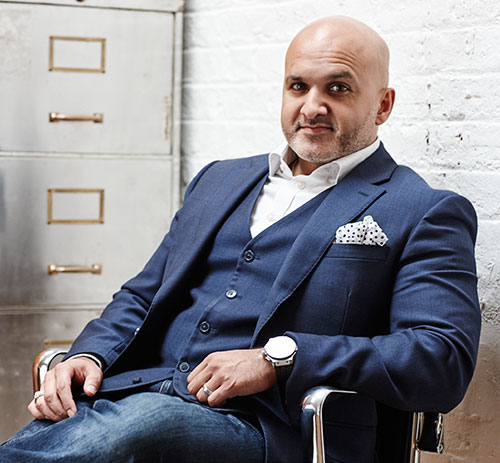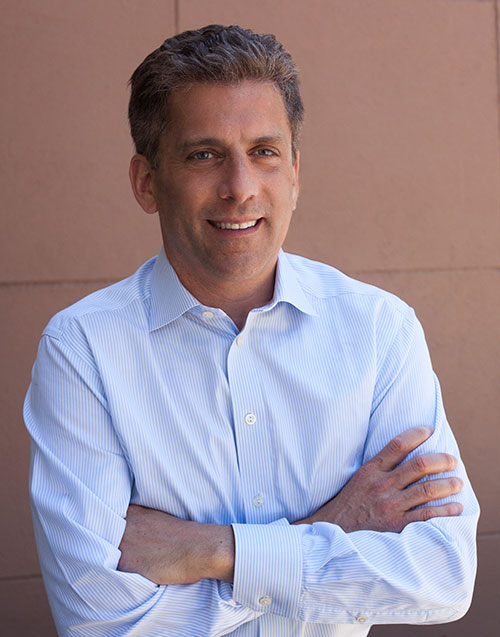Financial services and innovation (most often technological) are not always comfortable bedfellows. Heavy regulation can often inhibit new ideas and act as barriers to their implementation. In 2015, the FCA consulted on this, putting out a call for input to regulatory barriers to innovation in digital and mobile solutions. Today, many governments are setting up ‘regulatory sandboxes’ that allow innovative start-ups to test out their ideas first in a controlled, lightly-regulated environment.
Fintech start-ups are benefiting from this approach. In the UK, the FCA’s Project Innovate seeks to encourage innovation in the interests of consumers through a number of initiatives, including a regulatory sandbox and ‘Innovate: engagement’, which specifically encourages fintech innovation in firms based in the UK and internationally. Hong Kong’s regulatory sandbox is called the ‘Fintech Innovation Hub’; Abu Dhabi has the fintech ‘RegLab’; while Dubai has the ‘FinTech Hive’.
Consumer appetite is increasing for the flexible solutions that fintechs offer. Figures from EY’s
Fintech adoption index 2017 show that 42% of adults in the UK now use fintech applications, compared to just 14% in 2015. Globally, the average adoption rate has risen from 16% to 33% across the same period.
42% of adults in the UK now use fintech applications, compared to just 14% in 2015A string of businesses have capitalised on this interest, blooming from spare room start-ups into fintech unicorns – start-ups valued at more than $1bn – in a few short years. Many of these are platform businesses. They don’t access customer information or handle sensitive data, but provide an interface that lets customers do more with their existing accounts and memberships.
Some fintechs, such as crowdfunding platforms Crowdcube and Funding Circle, have become poster children for the sector and had their stories well documented. We spoke to a group of fintech entrepreneurs whose stories are less well-known but who are making their mark by disrupting financial services, providing new opportunities to the companies they partner with and significantly improving customer experiences.

Paresh Davdra, CEO, Xendpay
Product: 'Pay what you want' money transfer
Xendpay, founded in November 2014, aims to streamline money transfers by reducing both red tape and cost for people sending money to each other around the world.
Co-founder and CEO Paresh says commissions and high rates shave around 9% off the value of money transfers every year. His company’s service is aimed at migrant workers looking for cheap means to send their pay home, but also for individuals and companies generally looking to reduce costs.
Charges are capped at £4,000 per year for businesses and £2,000 for private customers, while individual fees are decided by the customers themselves. Uniquely, instead of paying a set fee, customers can choose to ‘tip’ for the service. Xendpay suggests a ‘fair’ amount, but users can pay more, less or nothing. Xendpay works via intelligent, automated technology and bulk transactions, which bring down costs.
“The banking framework and infrastructure is dated, which impacts the efficiency of sending money overseas. For example, we’re still required to ask clients to verify their accounts again and again, even when their money is coming from a reputable regulated source,” says Paresh.
He adds that the shift to open banking will be a gamechanger for the sector: “Payment companies built upon APIs [application programming interfaces], combined with blockchain technologies, will drive an integrated banking framework that will speed up payments across the globe.”
Paresh defines fintechs as companies that directly address the personal and consumer finance sector with technological intervention, by challenging the traditional model they were initially designed for.
Asked whether he thinks the changes triggered by fintech are revolutionary or incremental, he says: “Fintech has been revolutionary in challenging the narrative of the current banking practices. But it is also fair to say that the adoption has been incremental, partly because the industry is still evolving, and acceptance of change can be slow.”
 Lex Deak, CEO, OFF3R
Lex Deak, CEO, OFF3R
Product: Investment comparison websiteOFF3R, a web-based aggregator of wealth management and investment products, is designed to reduce complexity and improve access to the investment sector for people who are not finance experts.
The site has more than 50 product options to date and, since launching in 2015, has focused on alternative investments such as equity crowdfunding, peer-to-peer (P2P) loans and property investment platforms.
“At the high end, [the investment sector] is dominated by private banks with a high-net-worth focus and limited bandwidth for the general public,” says Lex. “The need for nurturing and managing wealth is vital given the pressure on pensions and social welfare.”
He says he was motivated to launch the business because of the lack of financial education aimed at consumers. Products are generally created for advisers and investment professionals, he explains, so only intermediaries can fully understand what’s on offer.
“Incumbents are slow to respond to changes in consumer behaviour and that has left room for fintechs to fill the void. The key issue for me revolves around transparency, especially in relation to fees.”
Lex defines fintechs as any venture looking to innovate in finance. “There are very few new entrants that don't require some element of technology in order to operate or scale,” he says.
“Within fintech there are aspects that are revolutionary. Clearly blockchain and digital currencies qualify. On the other side, mobile and challenger banks feel evolutionary.”
 Carl Reader, co-founder, TaxGo
Carl Reader, co-founder, TaxGo
Product: Low cost accountancy and tax planningCarl says accountancy services are “great for the largest million businesses in the UK”, for which they can repay their fees several times over in the form of shrewd planning advice. But millions more small businesses, with basic accountancy and tax planning needs, just want a cheap online service that gets the basics right.
The business uses automation and machine learning technology to provide the service quickly and, according to Carl, “more consistently than any human could”. The plan for the start-up, which launched in December 2016, is to eventually provide an ‘always on’ virtual accountant for much less than a human one.
TaxGo is among a large number of services targeting the growing group of one-person businesses known as ‘solopreneurs’, who must comply with government regulations like other businesses but have neither the cash nor the resources to match bigger and more established firms.
“Technology is at the heart of what we do,” Carl says. “Eventually, our systems will be able to completely automate processes from a set of records through to tax filings and advice. It will become a lot like choosing an online travel agent over a physical shop.”
Carl defines fintechs as any technical innovation in the financial sector, adding: “I wouldn't be surprised to see some of the most dated financial institutions adopting ‘fintech departments’.”
He believes the changes triggered by fintech have been incremental. “We've seen improvements in financial technology over many decades, and I'm sure we'll continue to do so. The revolutionary part is simply the pace at which the incremental improvements are now happening.”
 Steve Polsky, CEO and founder, Juvo
Steve Polsky, CEO and founder, Juvo
Product: Financial services for people with no bank accountJuvo is working with mobile telephony companies to offer credit to the billions of people globally who don’t have a bank account. Aimed at prepaid mobile users, the model uses machine learning and scoring technology to build credit reports for individual customers.
“The service helps mobile subscribers who are creditworthy, but live in cash-based societies and therefore haven’t had the opportunity to access financial services or create a financial identity,” says Steve.
“Nearly 80% of the world’s mobile phone users are on prepaid mobile devices and more than two billion are currently excluded from financial services. I wanted to build a company that would make a huge impact on lives.”
In his view, mainstream financial services companies must innovate, but keeping up with consumer demand is costly and time-consuming. By partnering with smaller fintech firms, he says, they can provide relevant solutions in a fast-moving market.
When it comes to defining fintech, Steve says the threshold is about impact. “It’s more than just refining an existing process with technology. A ‘fintech’ company is one that’s driving change for millions of people.”
He believes the changes triggered by the sector are revolutionary since its impact traverses the financial sector, specifically using technology to unlock something that was previously unattainable.
 Chris Maule, CEO and founder, UK Bond Network
Chris Maule, CEO and founder, UK Bond Network
Product: Bond finance for listed and private companies“The introduction of fintech to the financial services space was initially billed as David versus Goliath, but it has kindled as much collaboration as it has competition,” says Chris.
His business specialises in connecting growing companies with debt finance offered by private and institutional investors. The sweet spot is deals valued between £500,000 and £4m, which Chris believes is an underserved market segment.
High-net-worth individuals, institutions and family offices can browse a suite of offer documents and move money via UK Bond Network’s online platform.
Chris says providing the service via a digital channel has lots of advantages: “By distributing the bonds through an online platform, we have improved the efficiency of the traditional bond-broking process while increasing the transparency of a transaction for all parties.
“We wanted to give individual investors the ability to invest in this type of instrument in a way that is more self-directed and transparent. There was a gap in the marketplace and we had the knowledge and experience to step into it.”
His definition of fintech: “If a company aims to use technology to create value during a financial process for their end-user, it can be deemed a fintech company from the moment it turns the lights on.”
He believes the role fintech has played in shifting the focus of financial services back towards the end customer and improving the efficiency of their experience in terms of time, cost and ease, has been revolutionary.
This article was originally published in the Q4 2017 print edition of The Review. The print edition is available to all members who opt in to receive it, except student members. All eligible members who would like to receive future editions in the post should log in to MyCISI, click on My Account/Communications and set their preference to 'Yes'.
Seen a blog, news story or discussion online that you think might interest CISI members? Email eila.madden@wardour.co.uk.